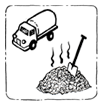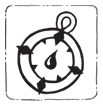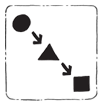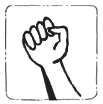Sustainability Portal
Sustainability is about whether or not WASH services and good hygiene practices continue to work over time. No time limit is set on those continued services and accompanying behaviour changes. In other words, sustainability is about permanent beneficial change in WASH services and hygiene practices. 1
Several sustainability frameworks show how to move from failing systems to reliable and lasting water and sanitation services.
History
Sustainability approaches for the WASH sector began in response to recurring project problems over time, which wasted billions of US dollars invested and resulted in failures such as pump breakdowns or sanitation systems overflowing as toxic pollution into the surrounding environment. With projects abandoned, communities were left, lacking proper fresh water access or hygienic sanitation solutions. This led to the realisation that sustainable service delivery required a sector-wide process of change. 2
F.I.E.T.S Model
This portal uses the basic structure of the five sustainability elements of FIETS, as developed by the Dutch WASH Alliance, to categorise many different frameworks, approaches and tools of sustainable WASH methods:
WASH FIETS animation
- Financial: continuity of WASH products and services through local financing (free from foreign funds)
- Institutional: sustained and functional local WASH systems with capable institutions, policies and procedures
- Environmental: sustainable management of water and waste flows that is considerate of the natural environment
- Technical: operation & maintenance of hardware, by local people, preserves not depletes (natural) resources
- Social sustainability: demand-driven, inclusive (equity), gender equal, culturally sensitive and needs-based approach to WASH
Contents
Field experiences
The following projects are currently utilizing sustainability methods.
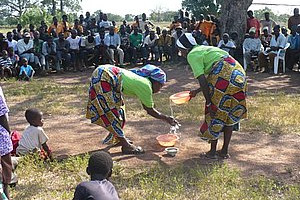 Partnership in WASH services delivery |
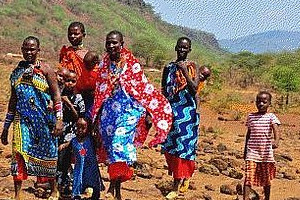 Scaling-up using CLTS in Kenya |
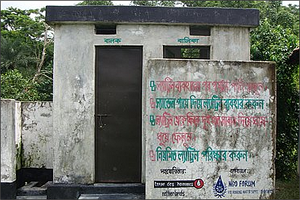 Scanning and Mapping the WASH Situation |
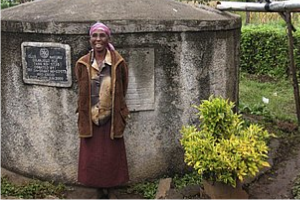 Rainwater Harvesting in Kenya |
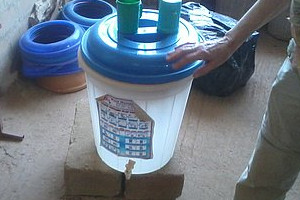 Cost effective means of financing WASH | ||
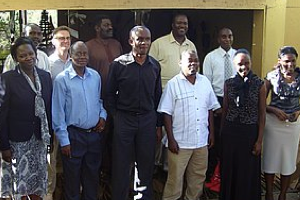 Promoting sustainable access to WASH services |
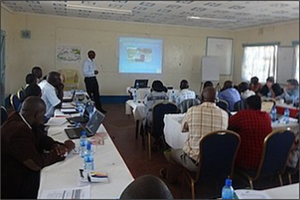 Kajiado WASH Programme |
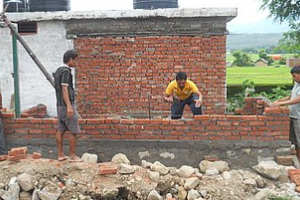 SWASH in Birendranagar, Surkhet |
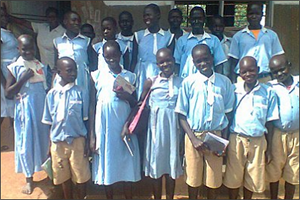 Integrated WASH project for Acholi Sub region |
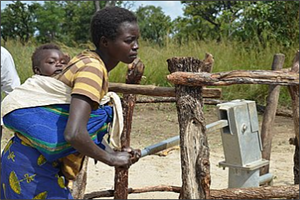 Northern Uganda WASH Alliance Project | ||
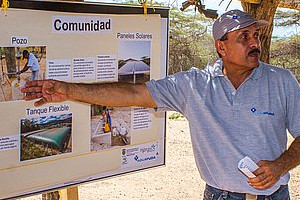 MWA-LAP: Colombia |
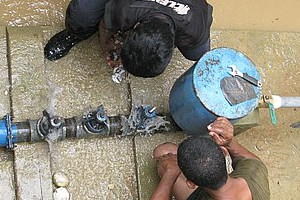 MWA-LAP: Nicaragua |
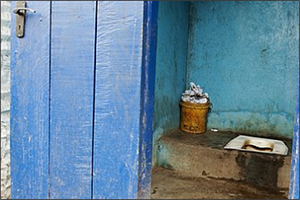 WASH services & capacity building Liberia |
Sustainability resources
Links
- 3R Smart Solutions
- IRC - Triple-S - waterservicesthatlast.org
- Dutch Water Alliance - washalliance.nl
- SustainableWASH.org - sustainablewash.org
References
- ↑ Richard C Carter, Erik Harvey, Vincent Casey (WaterAid, UK), User financing of rural handpump water services. IRC Symposium 2010. Pumps, Pipes and Promises. IRC.
- ↑ Schouten, T and Moriarty, P. , 2013. The Triple-S theory of change. (Triple-S working paper ; 3). The Hague, The Netherlands: IRC International Water and Sanitation Centre.
Acknowledgements
- The material in this portal is primarily a collaboration of IRC and Akvo Foundation.
- The FIETS icons were made in collaboration with the Dutch WASH Alliance.
| |
